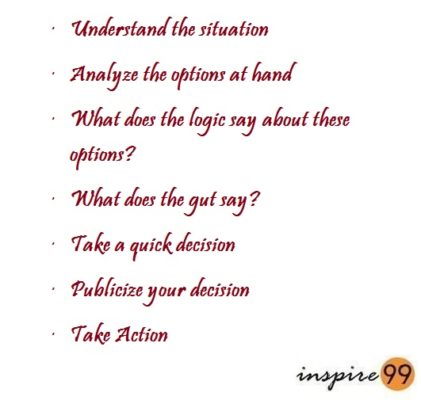4 d’s of time management: This is one of the most powerful frameworks to manage time better. The 4D’s framework makes us question the types of work that we should do vs the ones that need to be delegated or transferred to someone else. This can be used powerfully in conjunction with the Eisenhower Matrix to give us more control over time management principles.
What are 4D’s of time management?
The 4D’s of time management was created by Jack Canfield in his book – The Power of Focus. It tells us about the 4 dimensions or strategies for managing time so that we don’t feel overwhelmed or stressed all the time. Time management and stress management are closely related to stress having damaging impacts. Hence the more control, strategy and focus we have on time management, the better it will be for us.

The 4D’s of time management are:
- Do – Important and urgent things. This represents all the things that are both important and urgent. These things should be done by us because the results have a lasting and stronger impact
- Delete – Most people forget about deleting tasks from their list. As a result of this, the list grows forever, thus overwhelming them in the future. Be brutal, delete items from the list whenever you get an opportunity to.
- Defer – Procrastination is bad, but sometimes postponing certain things can give us a different perspective. When you are not clear about the scope of work or it is uncertain, deferral is a good strategy
- Delegate – Finally, the most important part of time management this that you don’t have to do everything by yourself. You can still get things done with the help of others or a team where you can trust them for their quality of work.
Do – The 1st D of Time Management
As the word says, these things demand immediate attention. There’s very little time to think – if these things are important and urgent, it is best to start working on them straight away. These are the types of things that should not be procrastinated because a delay can have devastating effects. Any item that qualifies under this segment must be approached first. If you can’t act on it straight away, at least create a plan of action so that you know that it won’t surprise you later on.
Delete – The 2nd D of Time Management
Most people don’t recognise how powerful ‘Delete’ is in the 4D’s of time management. Our backlog or list of items is precious – we have to act as a gatekeeper before letting something into it. If we let things that are unimportant or of low value, then we are taking time away from important things. Hence, we have to be very strict and make sure that we periodically delete items from the list. Something important a long time ago may not have the same impact any more. We have to constantly review and make sure that we know the value of something before spending time on doing it.
Defer – The 3rd D of Time Management
Some items must be postponed. Although it sounds similar to procrastination – this is done for things that we are not clear about. These items might change with time or even become unimportant at a later stage where they can be deleted. Instead of working on such items straight away – identify if this si something you can postpone. If the impact of postponing is not high, then it makes a very good case for deferral.
Delegate – The 4th D of Time Management
This is one of the most powerful ways of managing time. We can’t do everything by ourselves. We must actively find a way to delegate these things and see if there’s a way someone else can do it without compromising the quality. At first, it might seem that no one else can do it any better – delegate it anyway. We will need to create a way to be comfortable with delegation. We might be able to do everything. But in the process, we lose precious time. Perfection sometimes is the evil which holds us back and makes us worse at time management.
I hope these 4Ds of time management provide an inclination towards taking control of time.

Pingback: 3 Rules to deal with Not Having Enough Time? - Inspire99
Pingback: If you want something done right do it yourself - Inspire99
Pingback: So often people are working hard at the wrong thing - Inspire99 %startup
Pingback: Time Management Ppt:10 Slides For Mastery of Your Time - Inspire99
Pingback: 4 Quadrants of Time Management - Eisenhower Matrix - Inspire99
Pingback: How to use time effectively - 5 Key Tips - Inspire99
Pingback: Time isn’t the main thing, it’s the only thing - Miles Davis - Inspire99
Pingback: 8 Time Management Skills to Increase your Productivity - Inspire99
Pingback: To live in the present moment is a miracle - Inspire99
Pingback: The key is in not spending time, but in investing it - Stephen Covey - Inspire99
Pingback: 7 Powerful Tips on Focus on being productive instead of busy - Inspire99
Pingback: Time Management is Life Management - Brief Essay - Inspire99
Pingback: Quick Decisions are unsafe decisions! - Startup, Motivation %Self Improvement